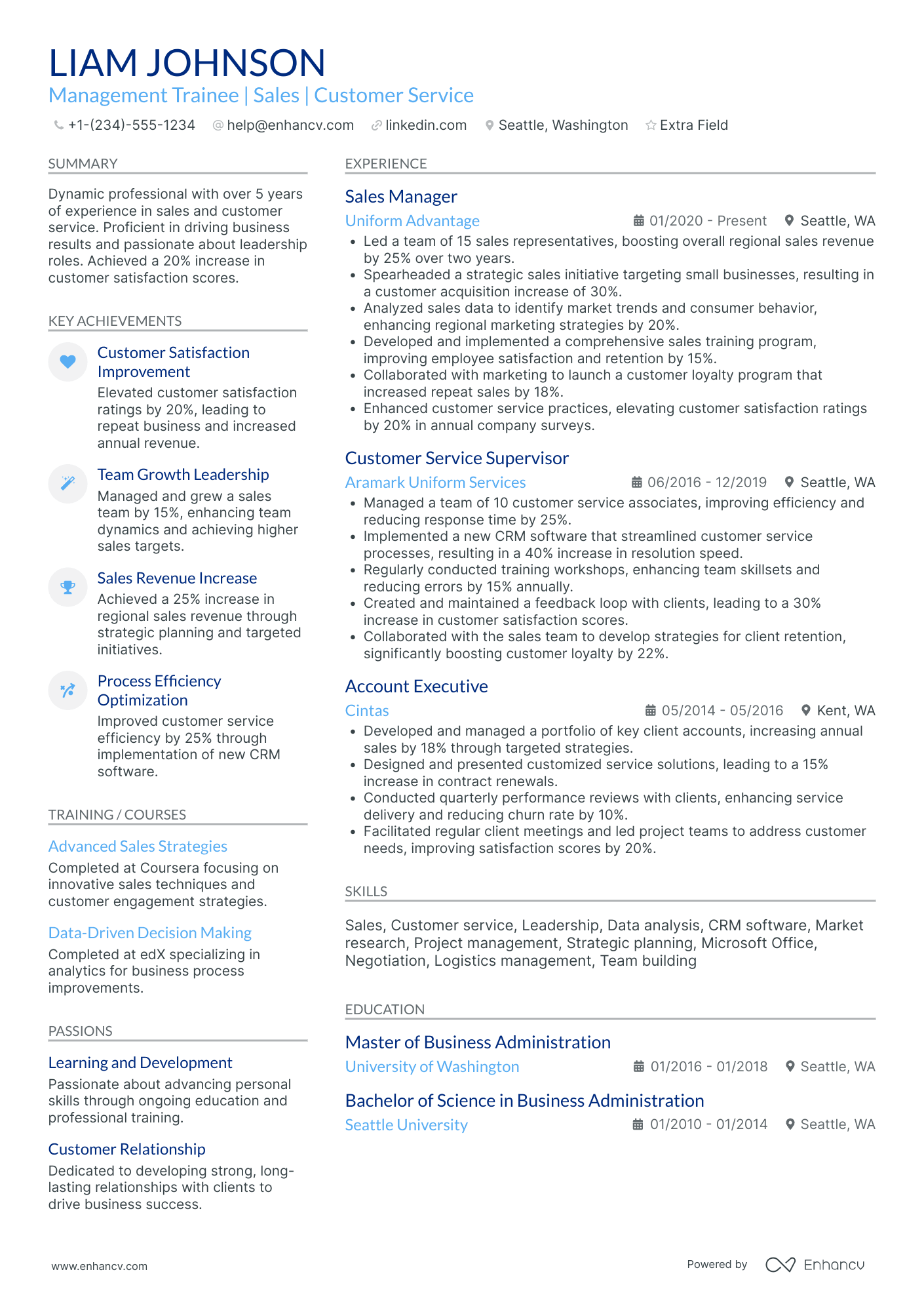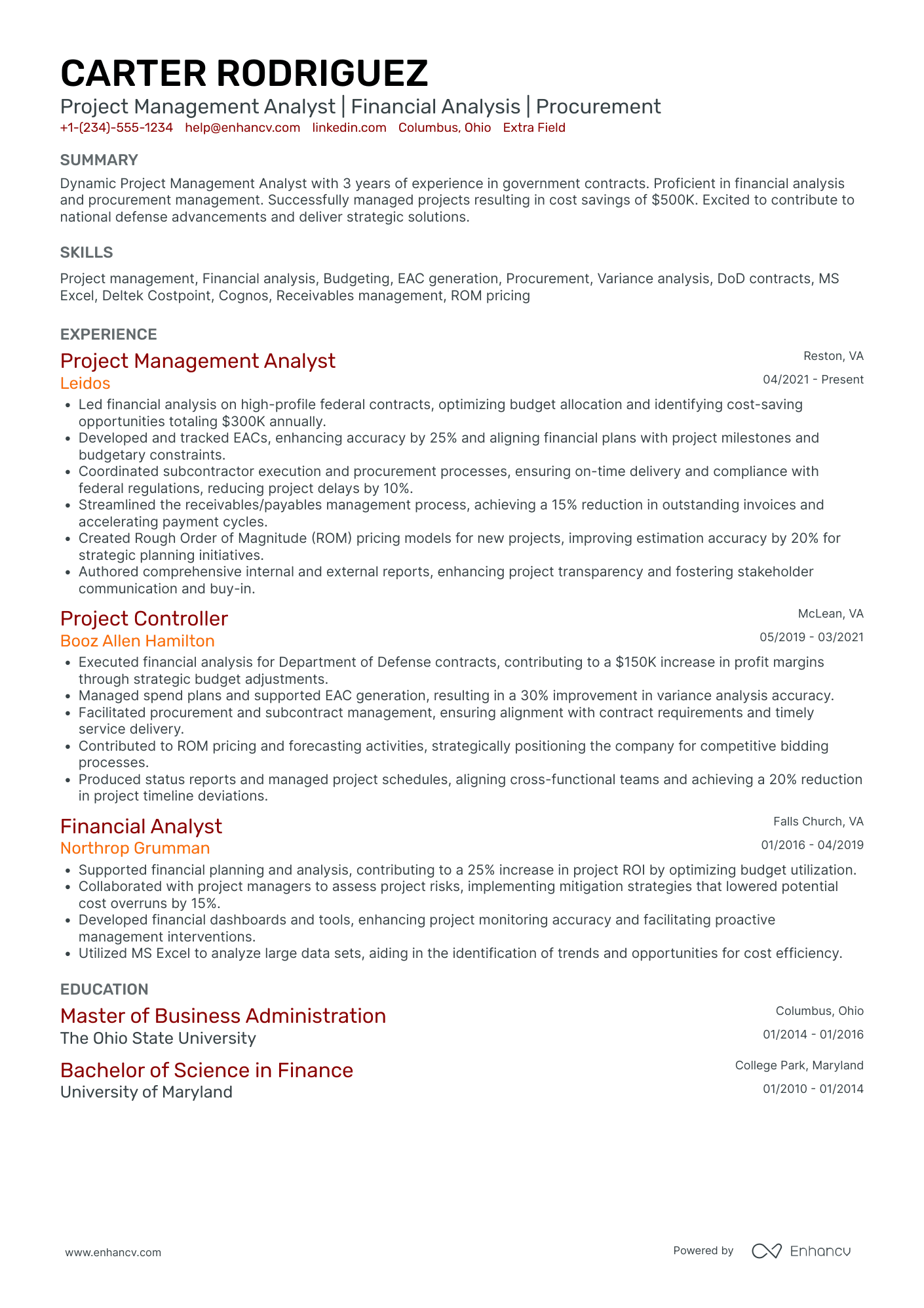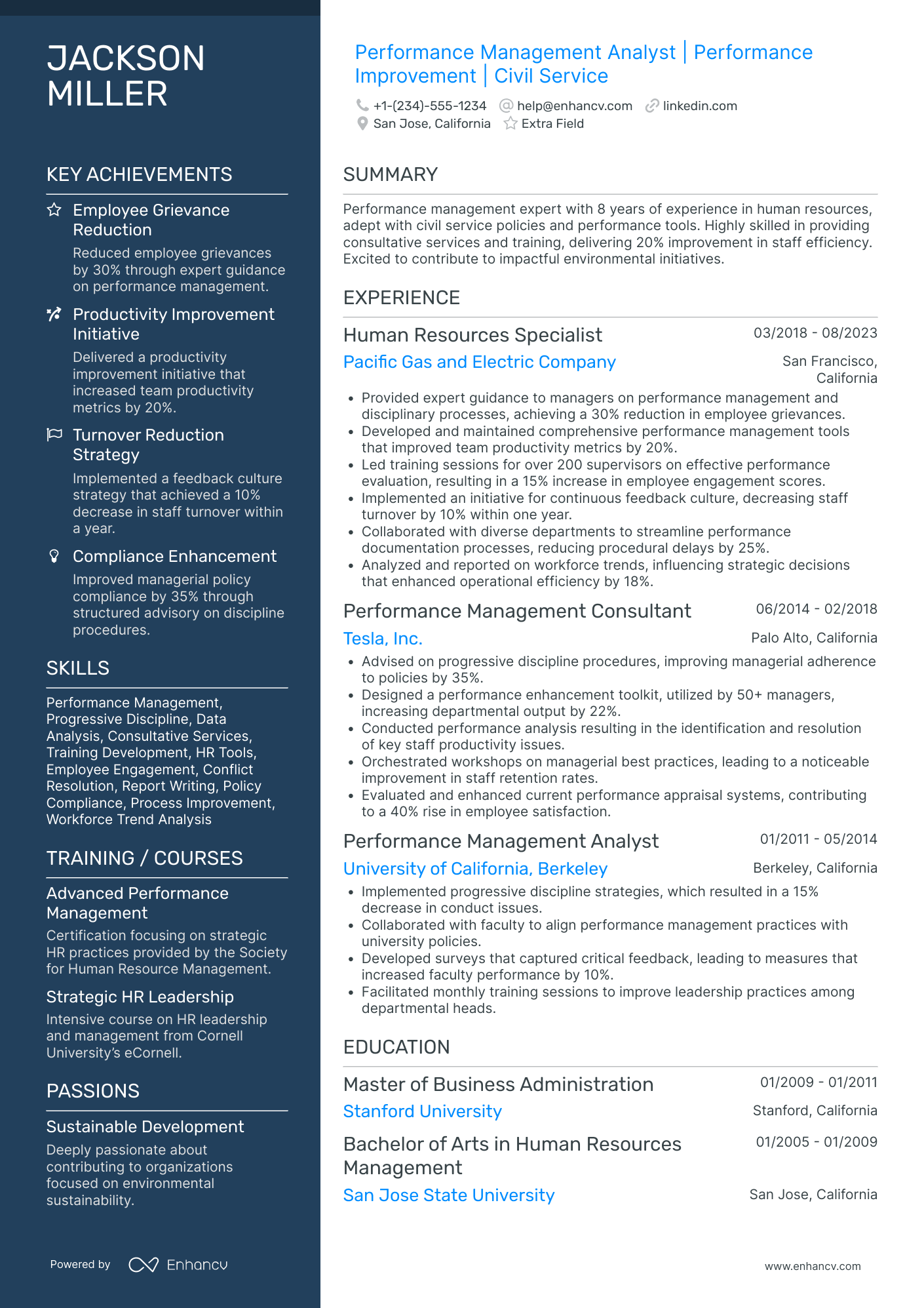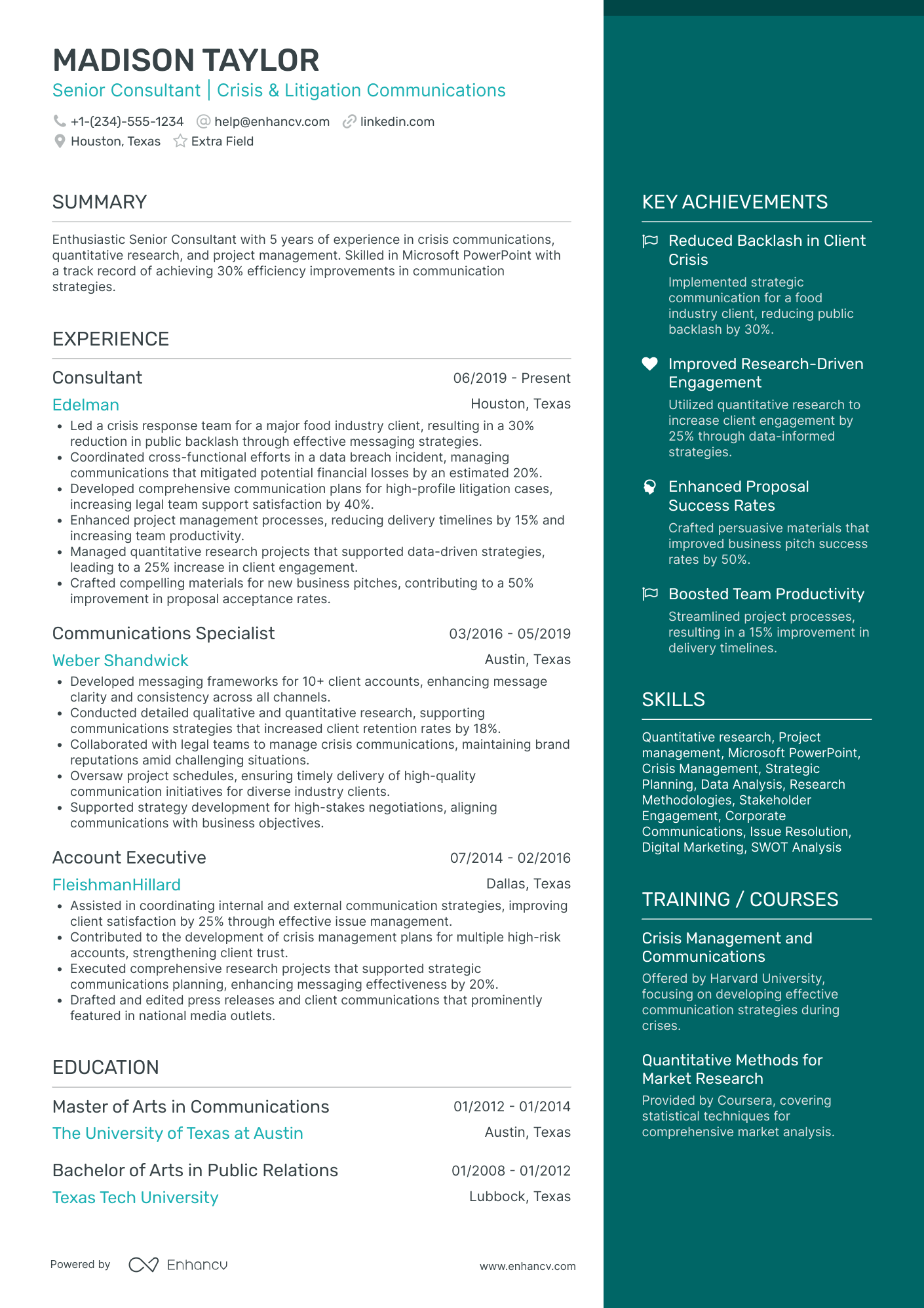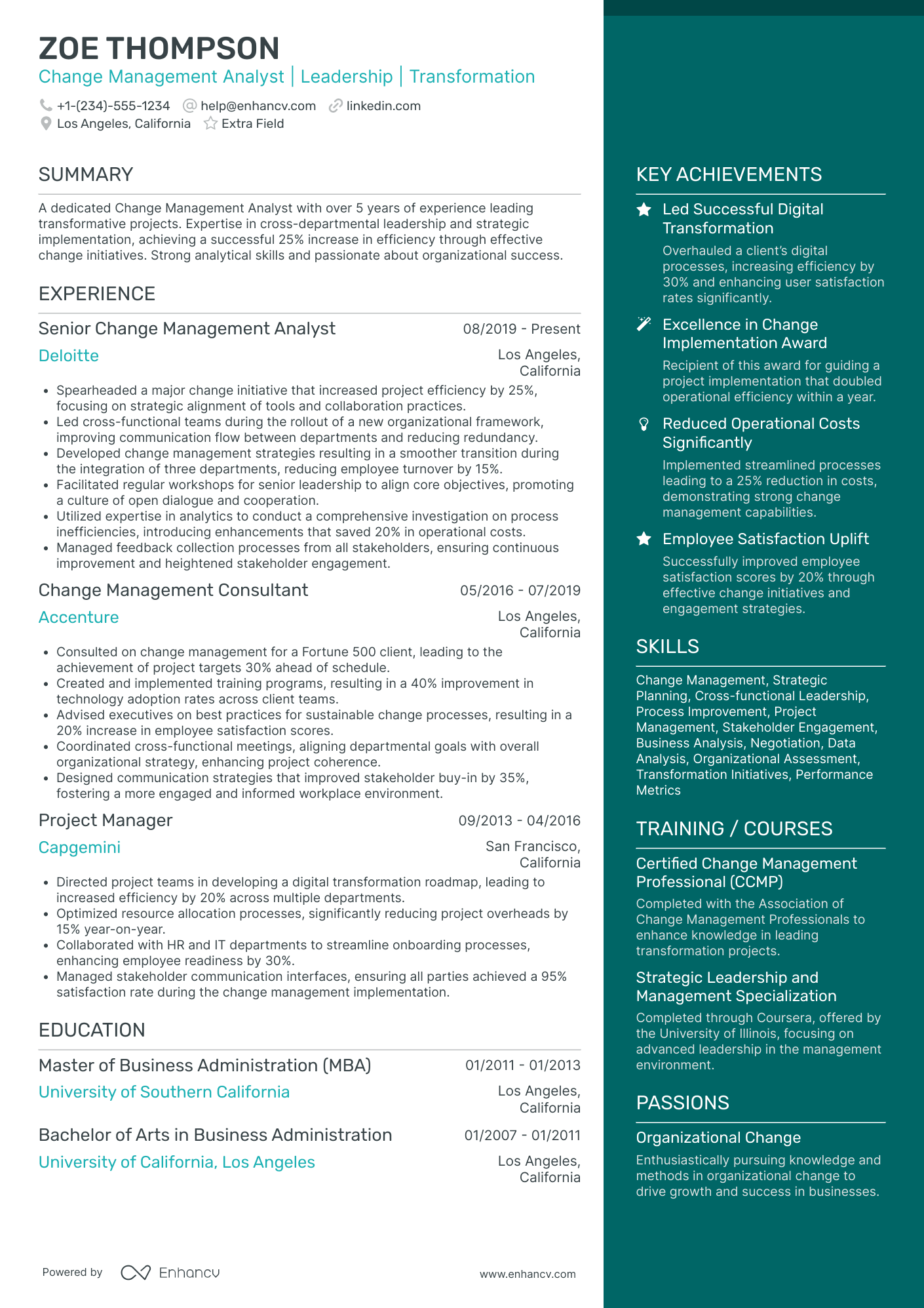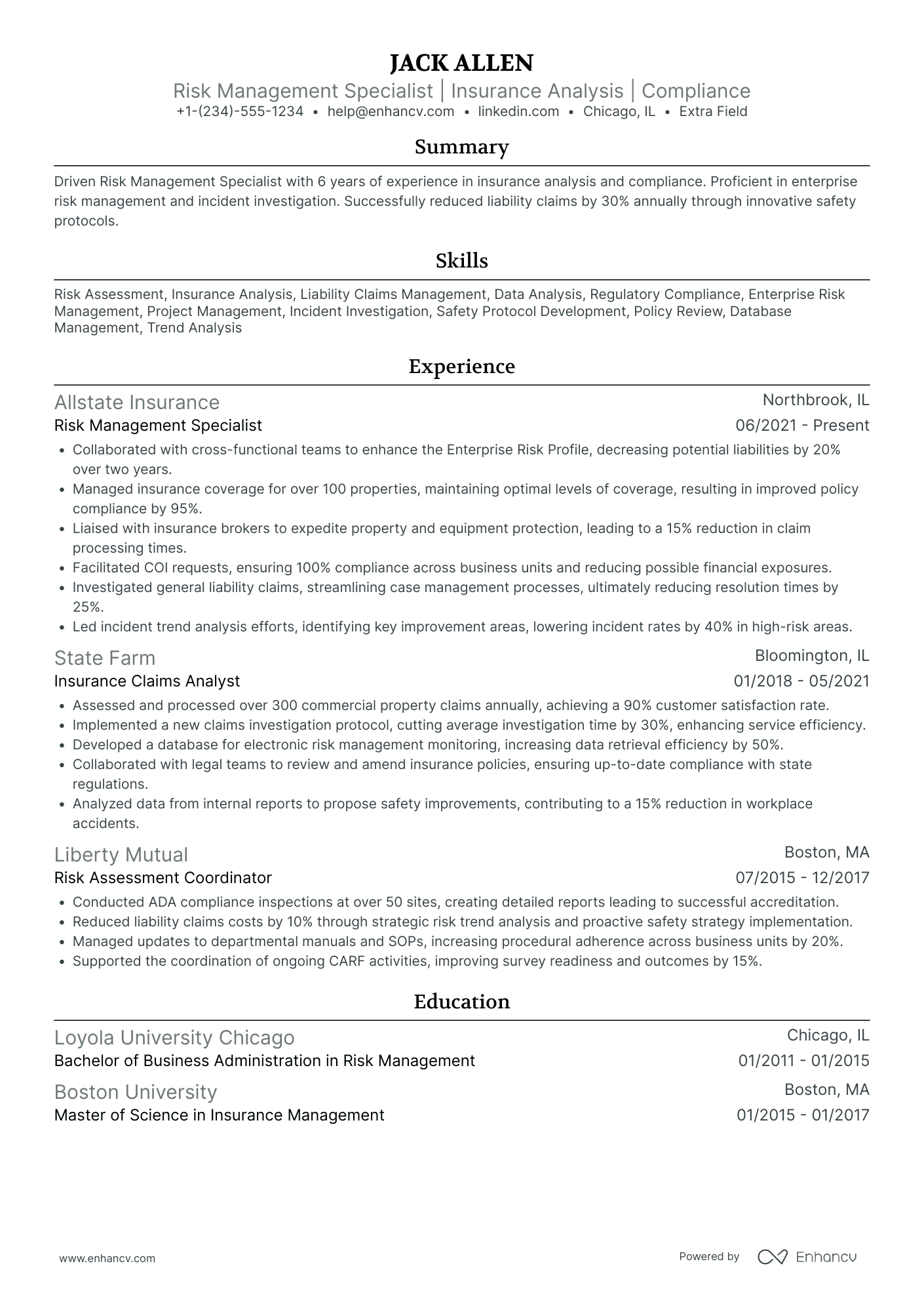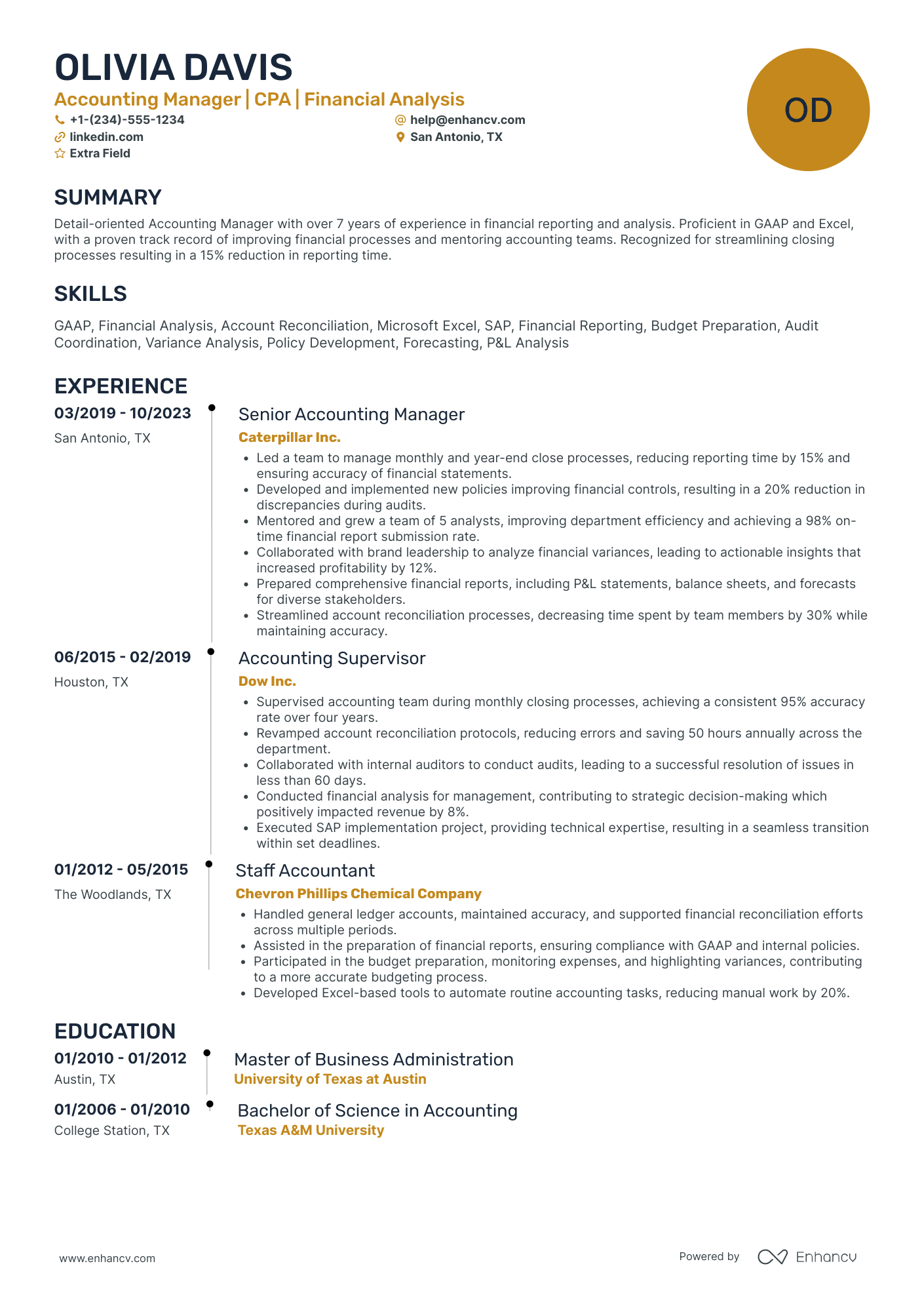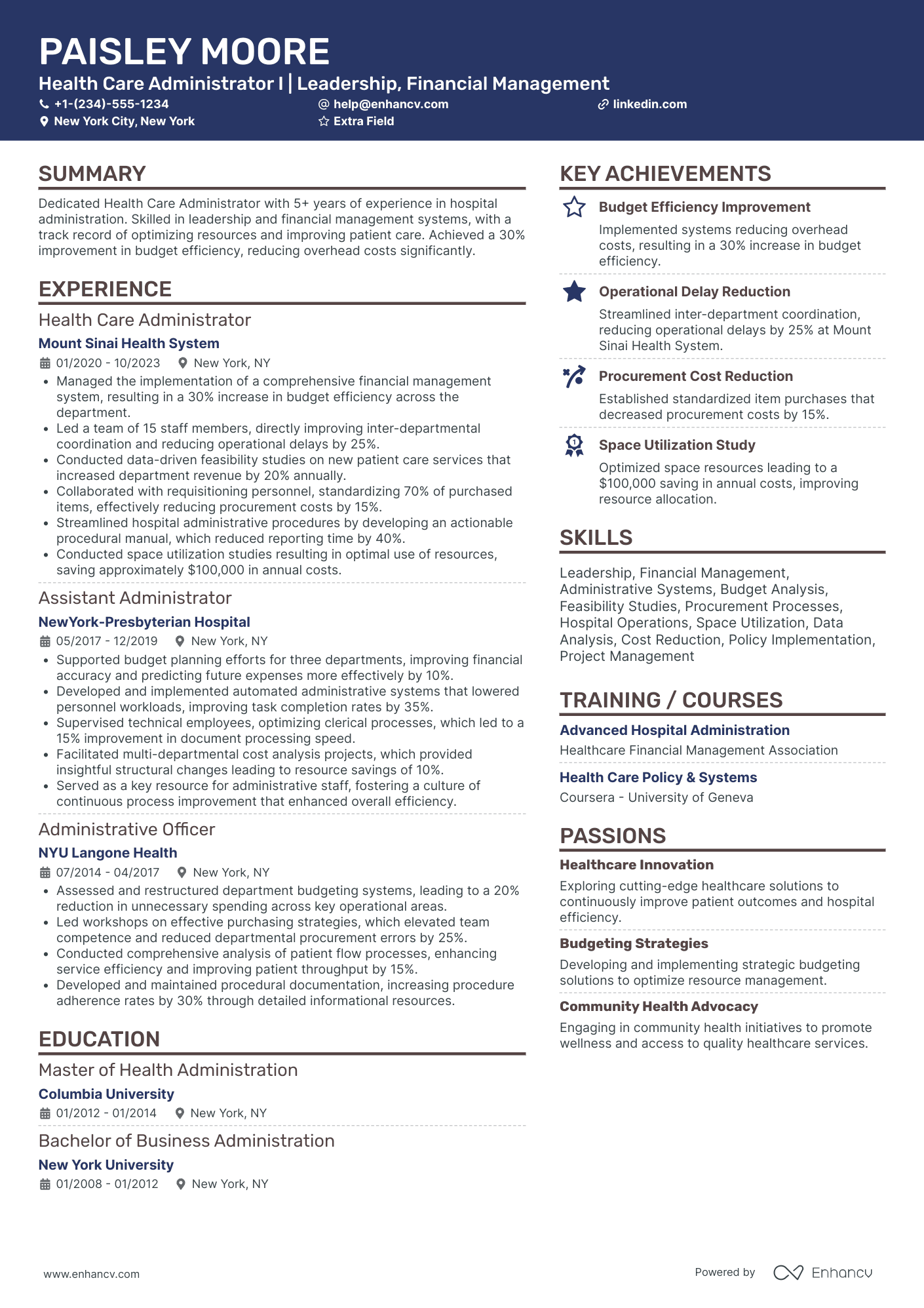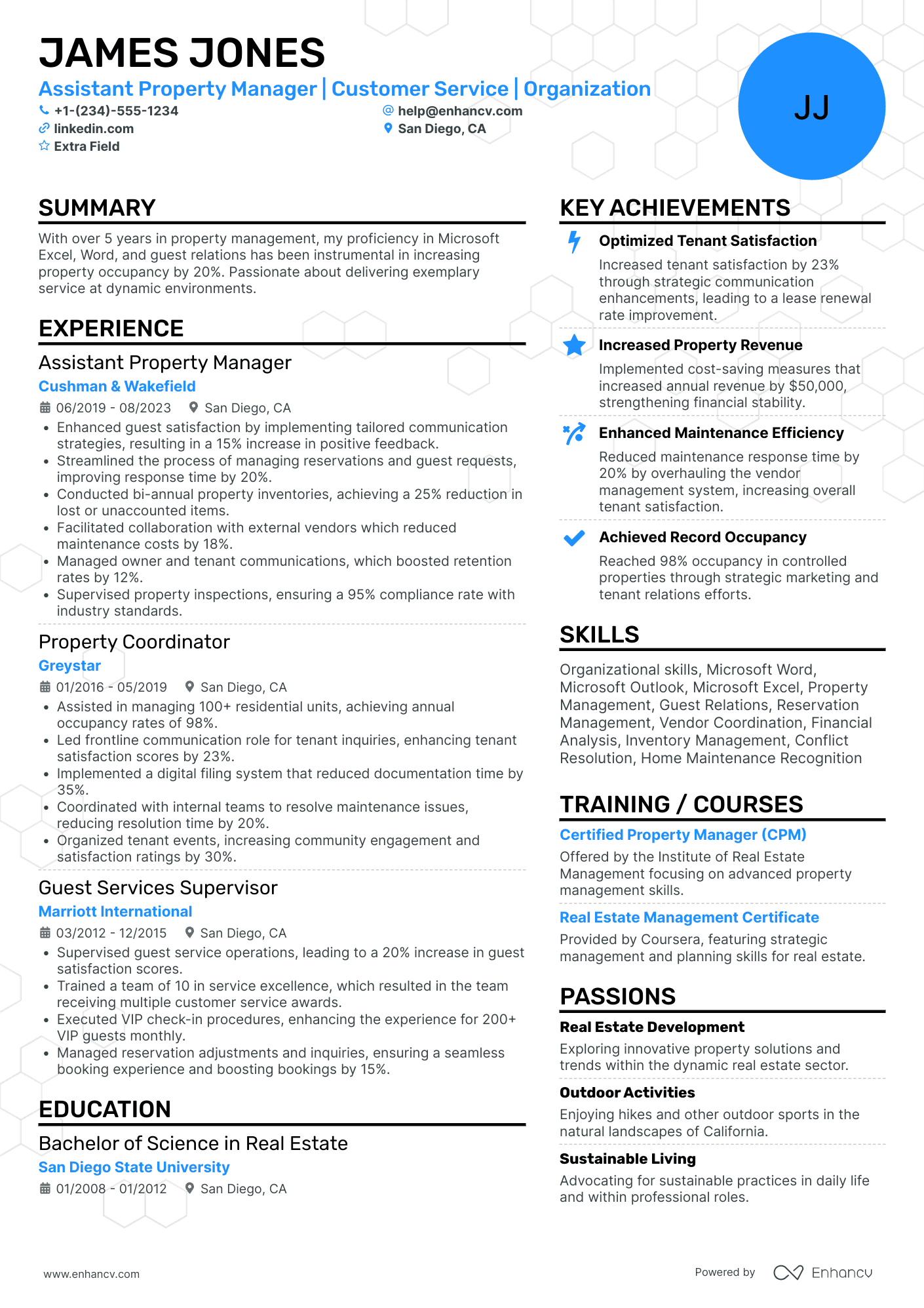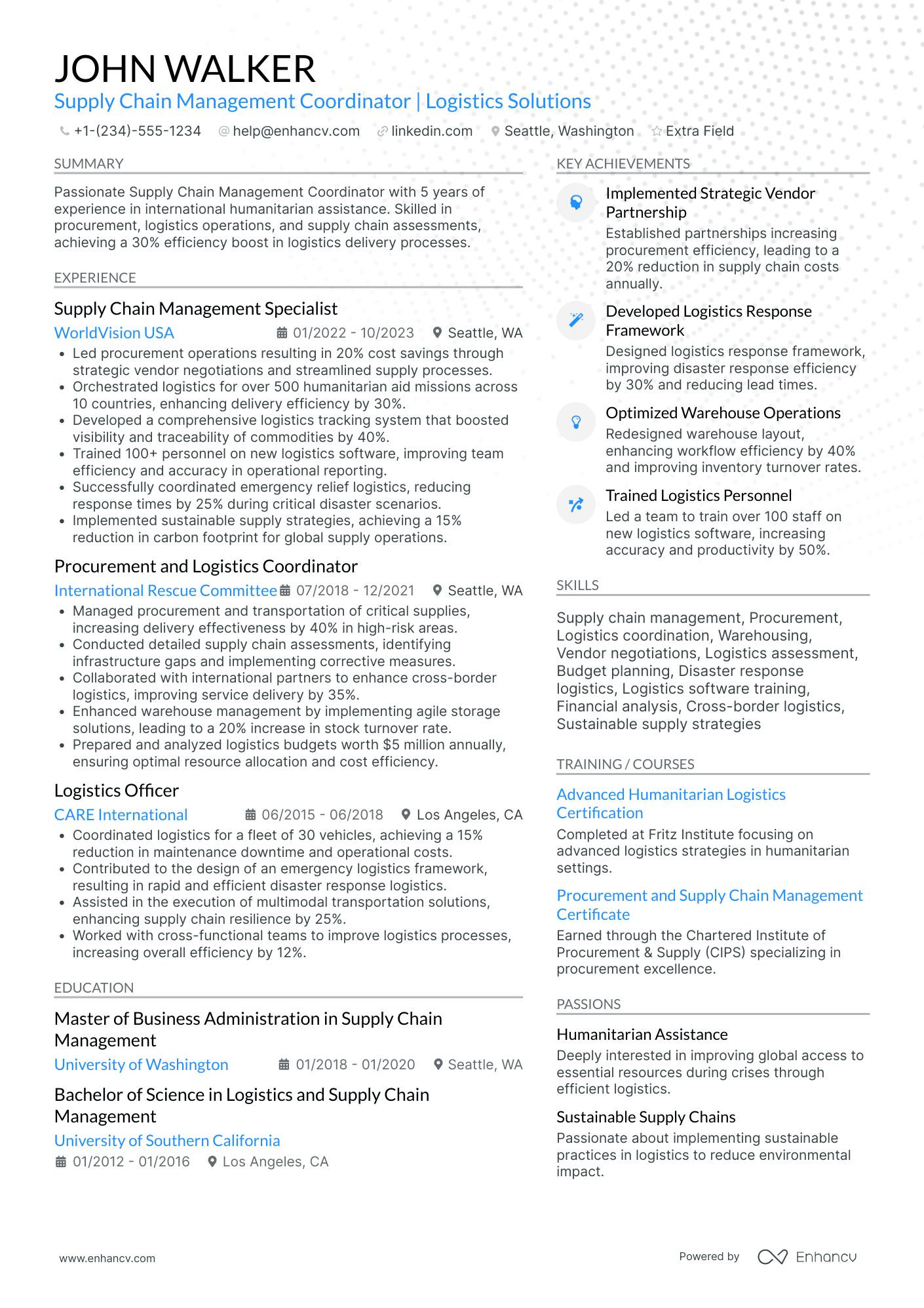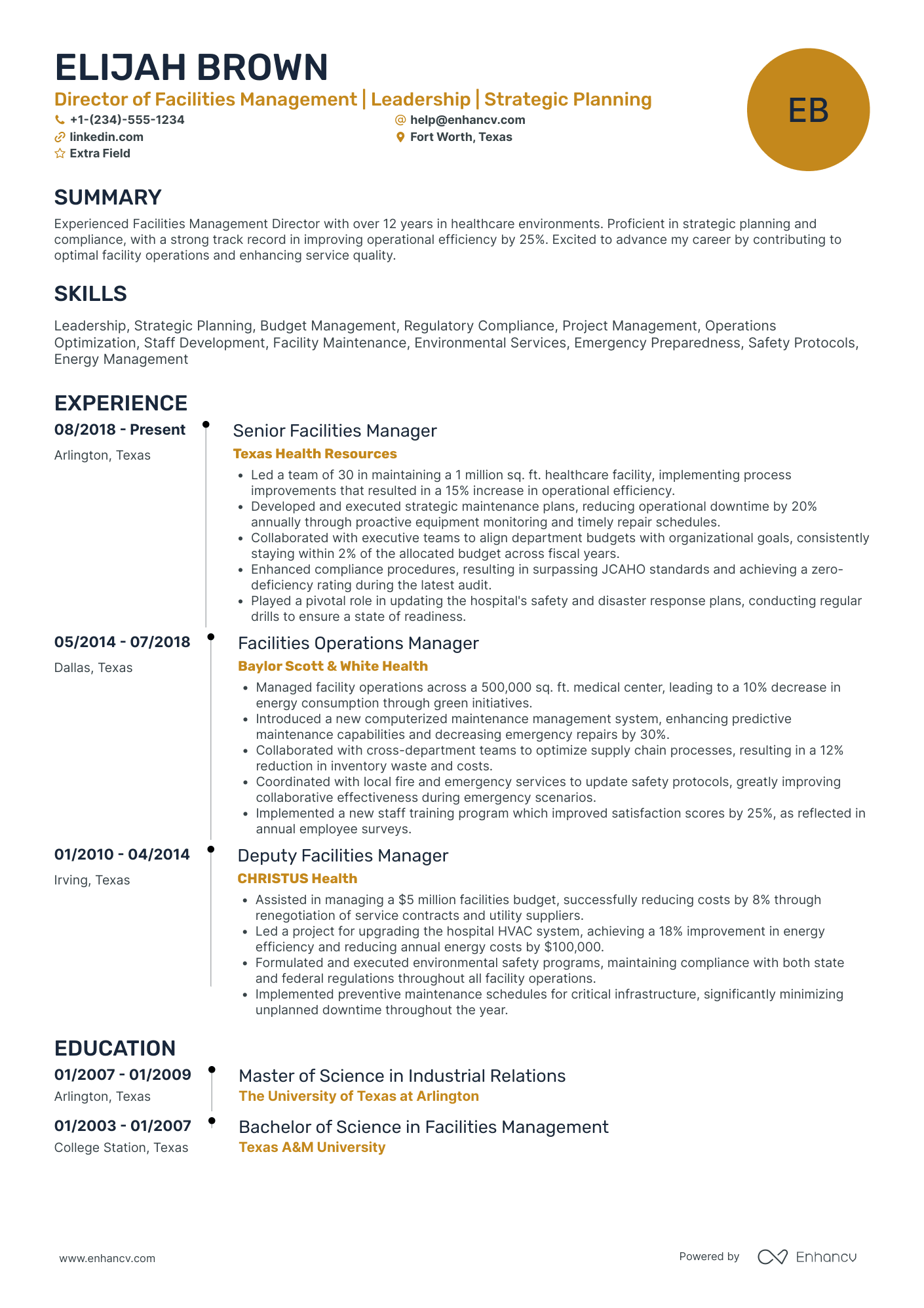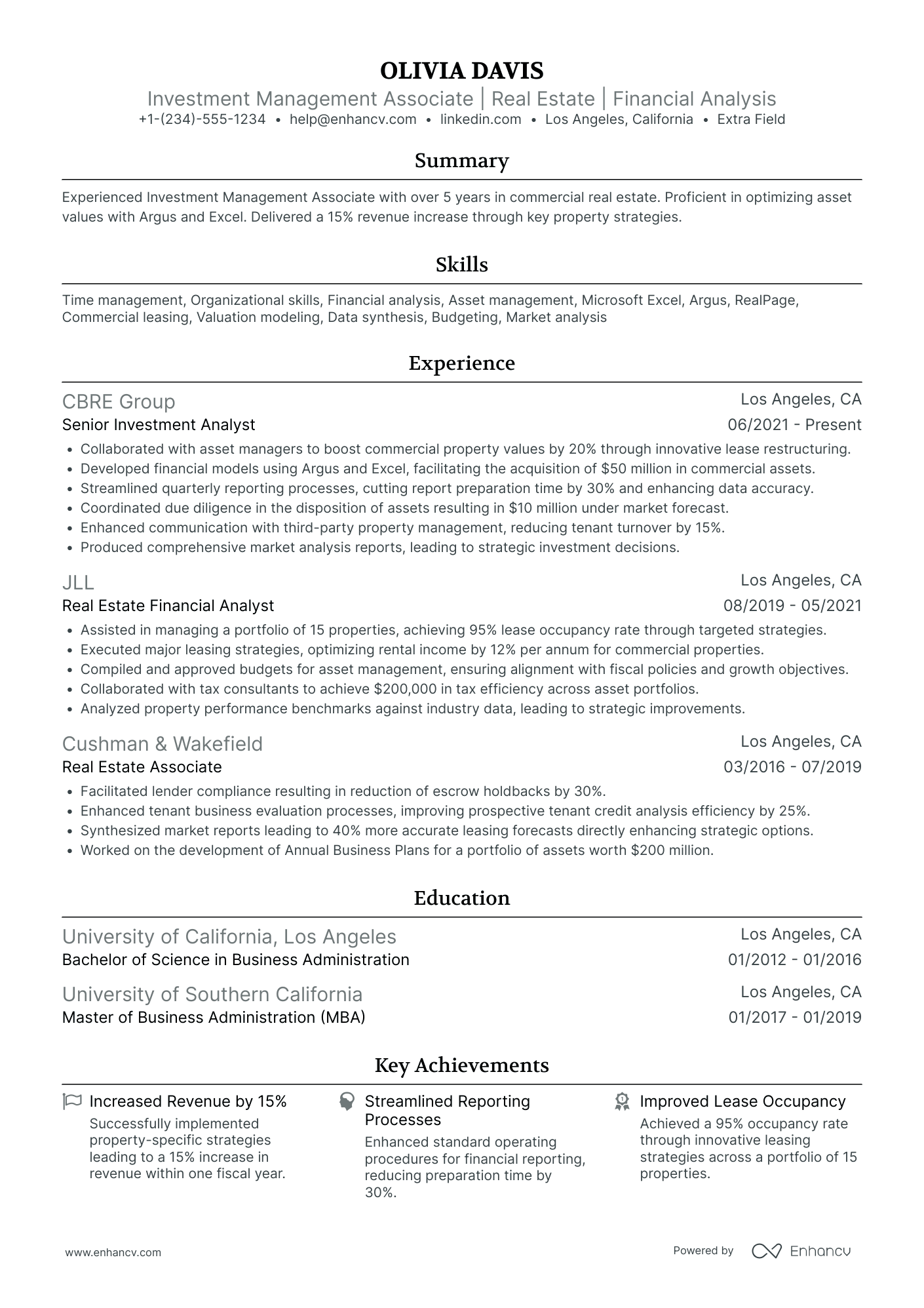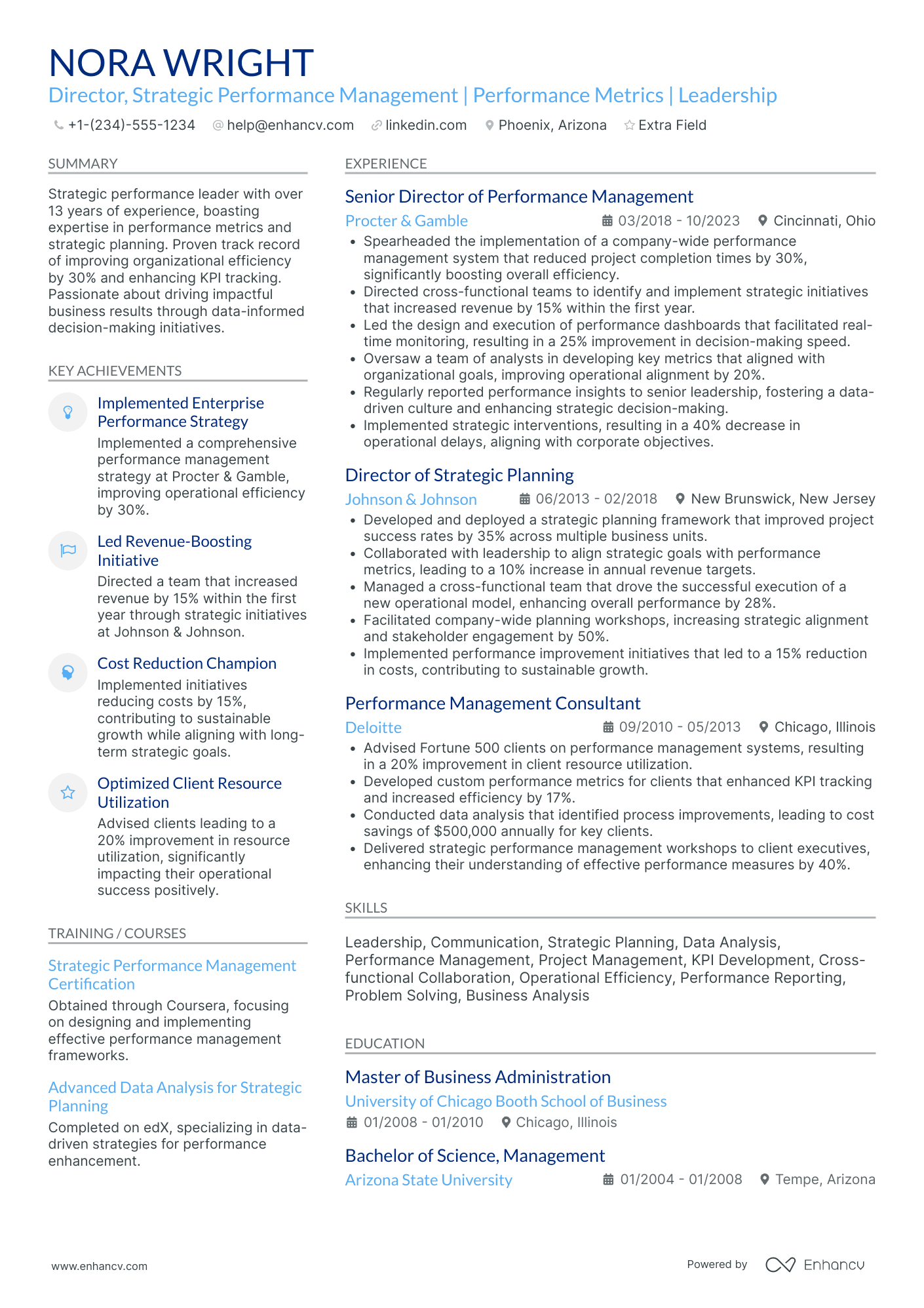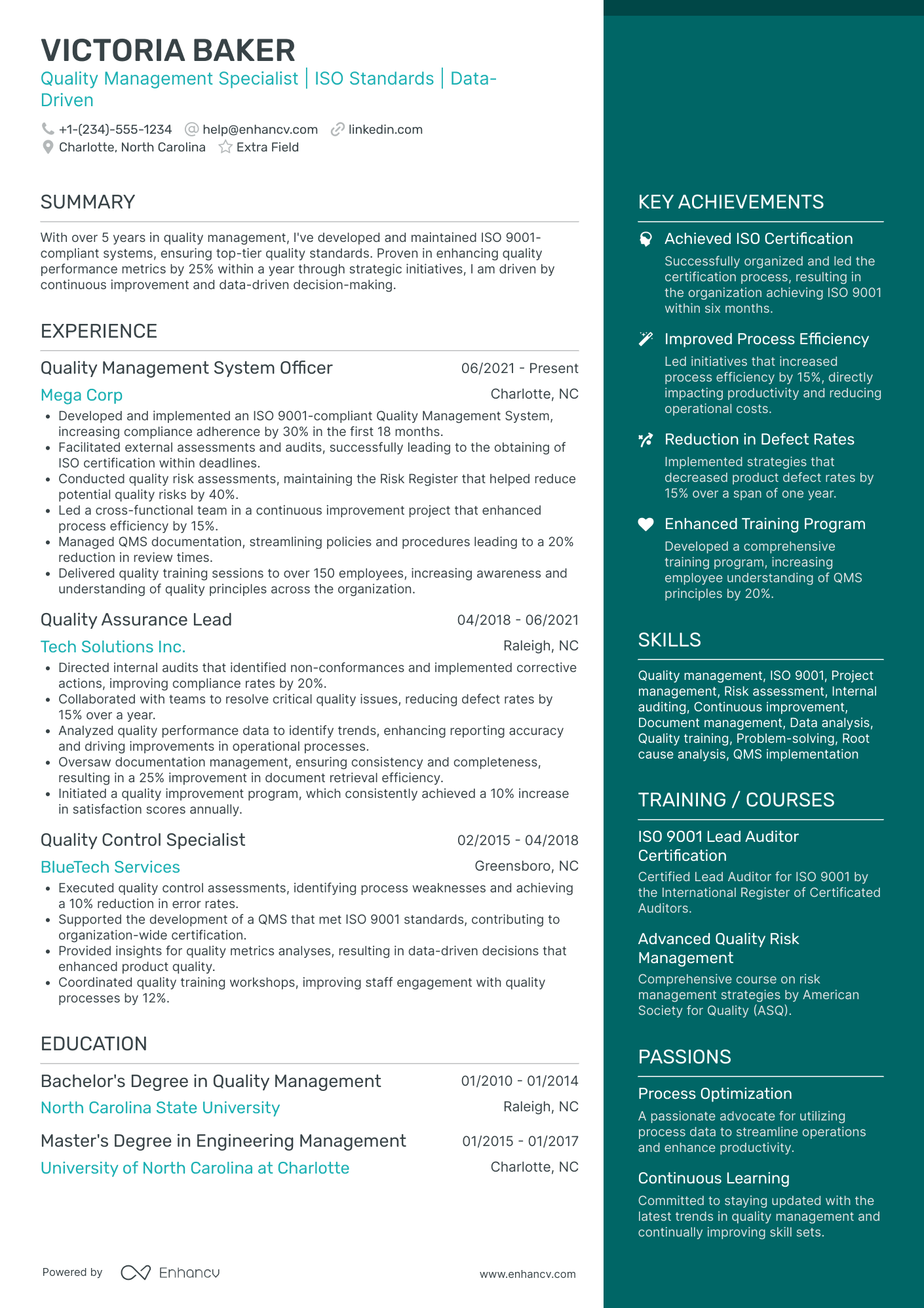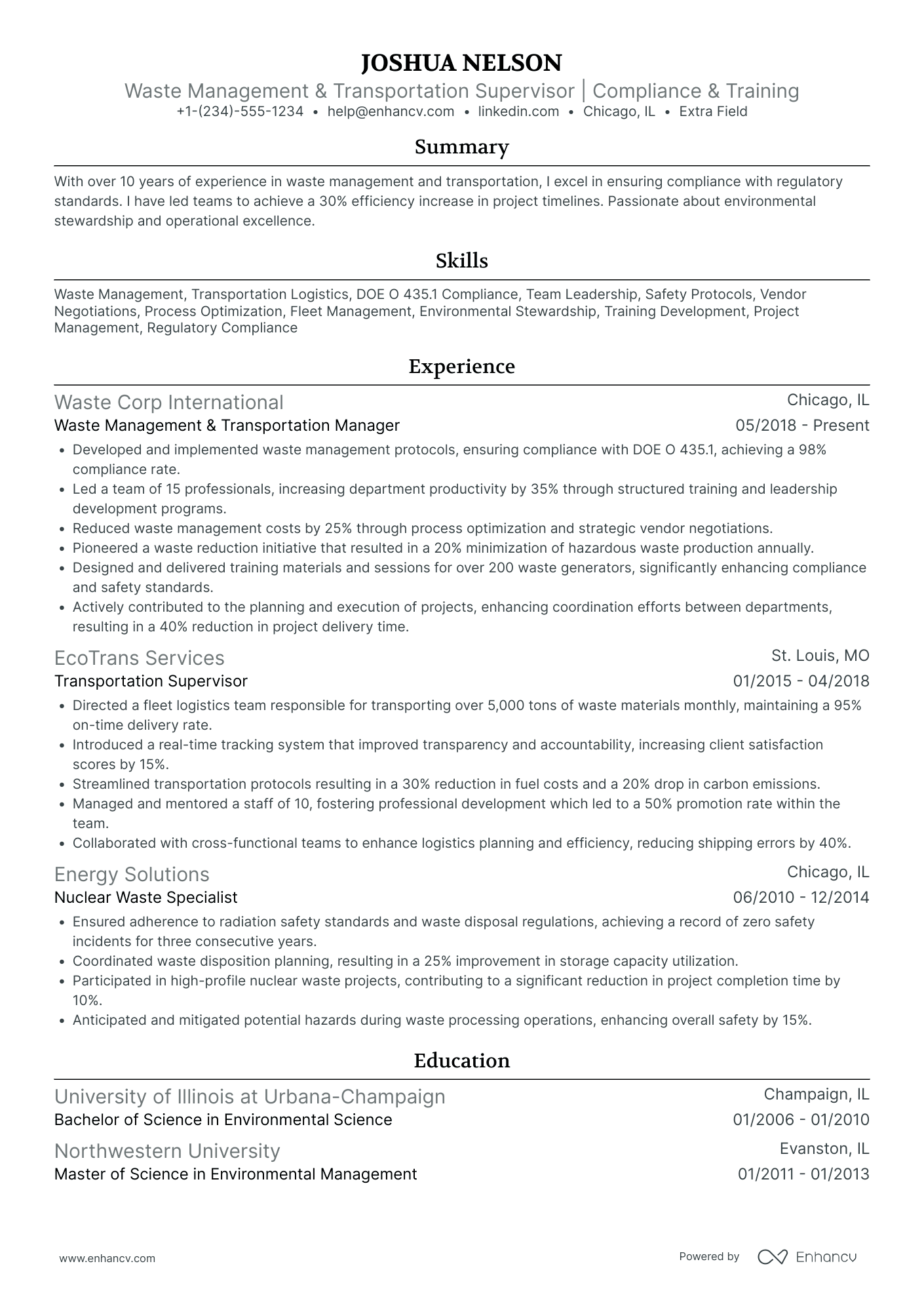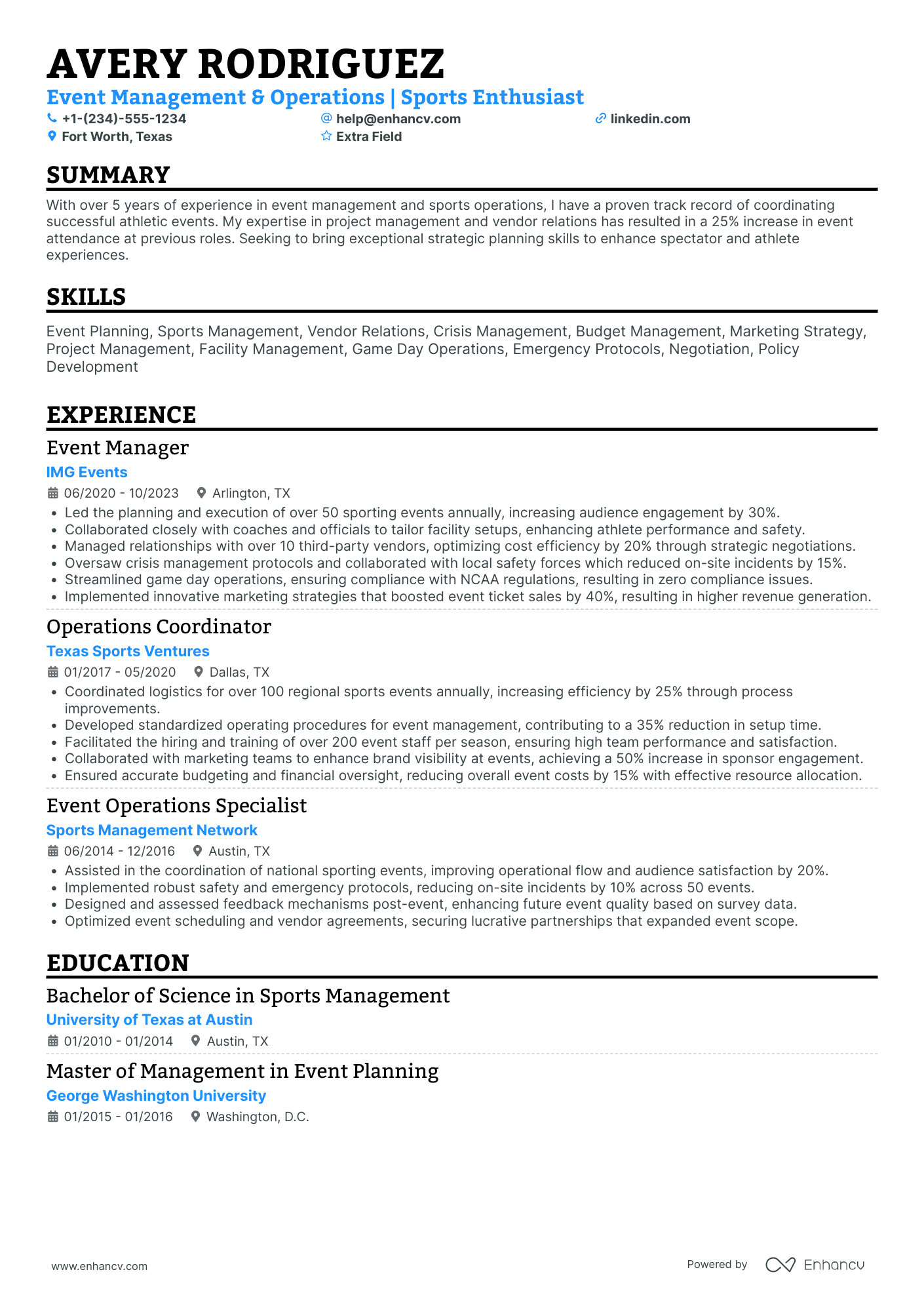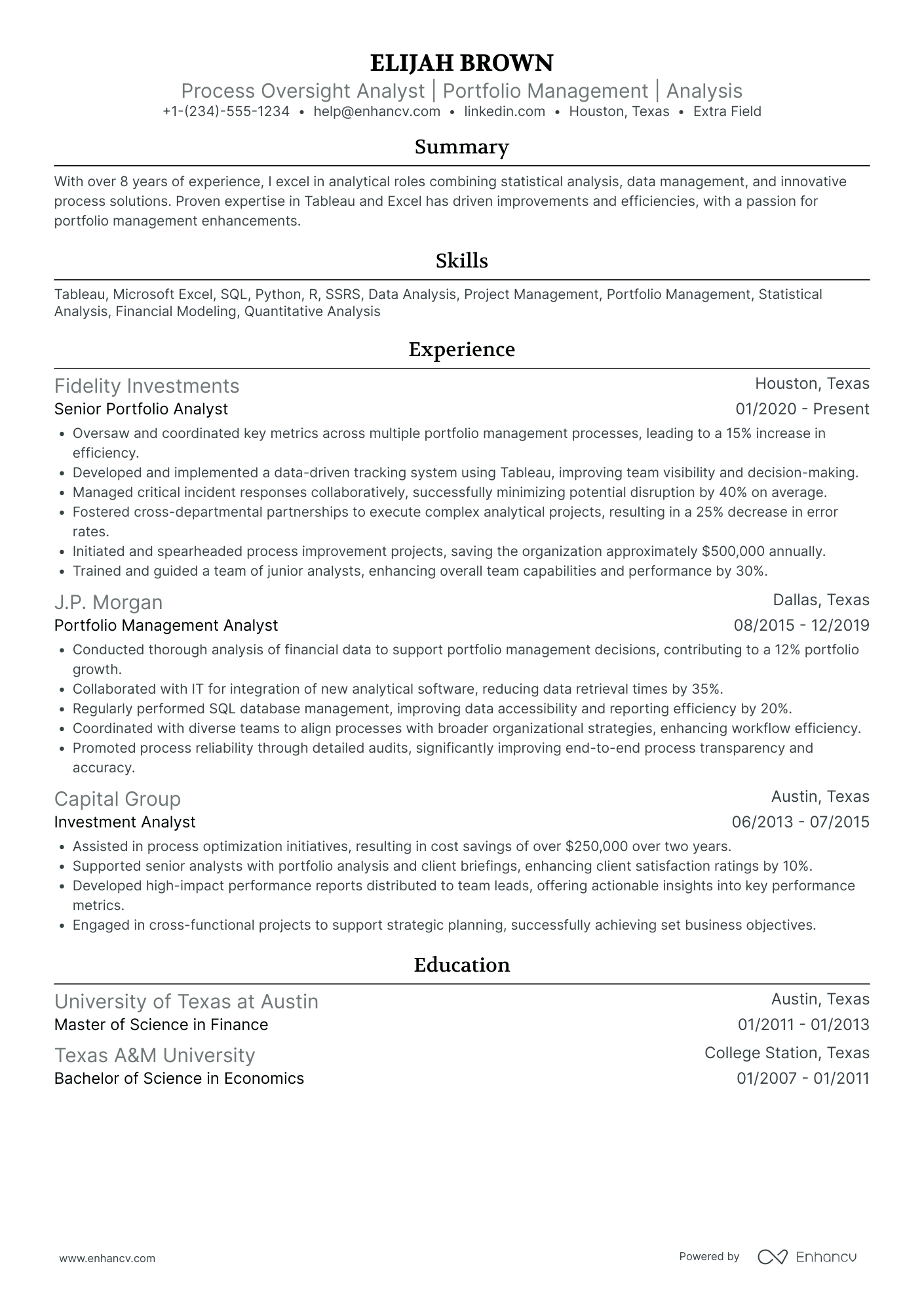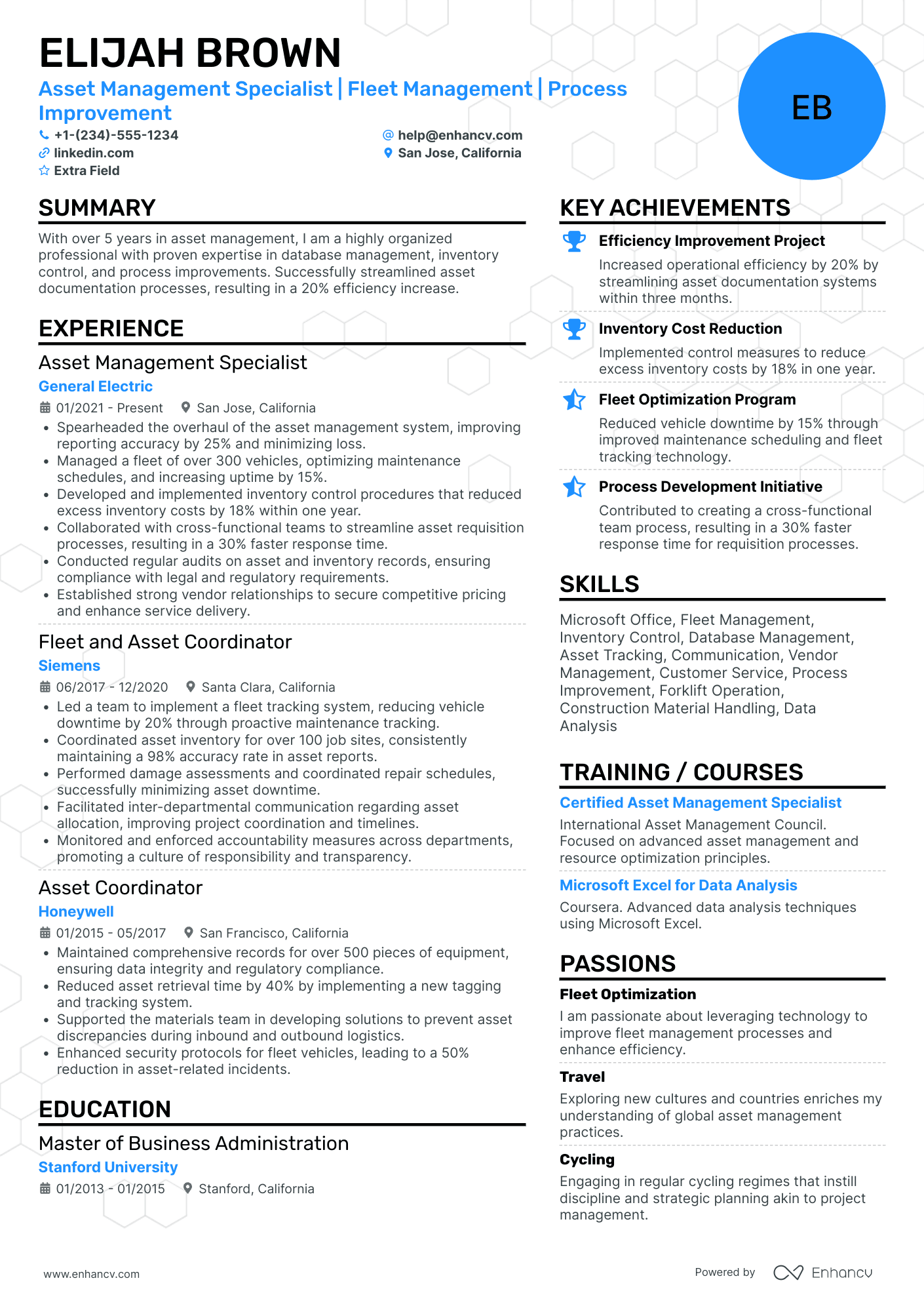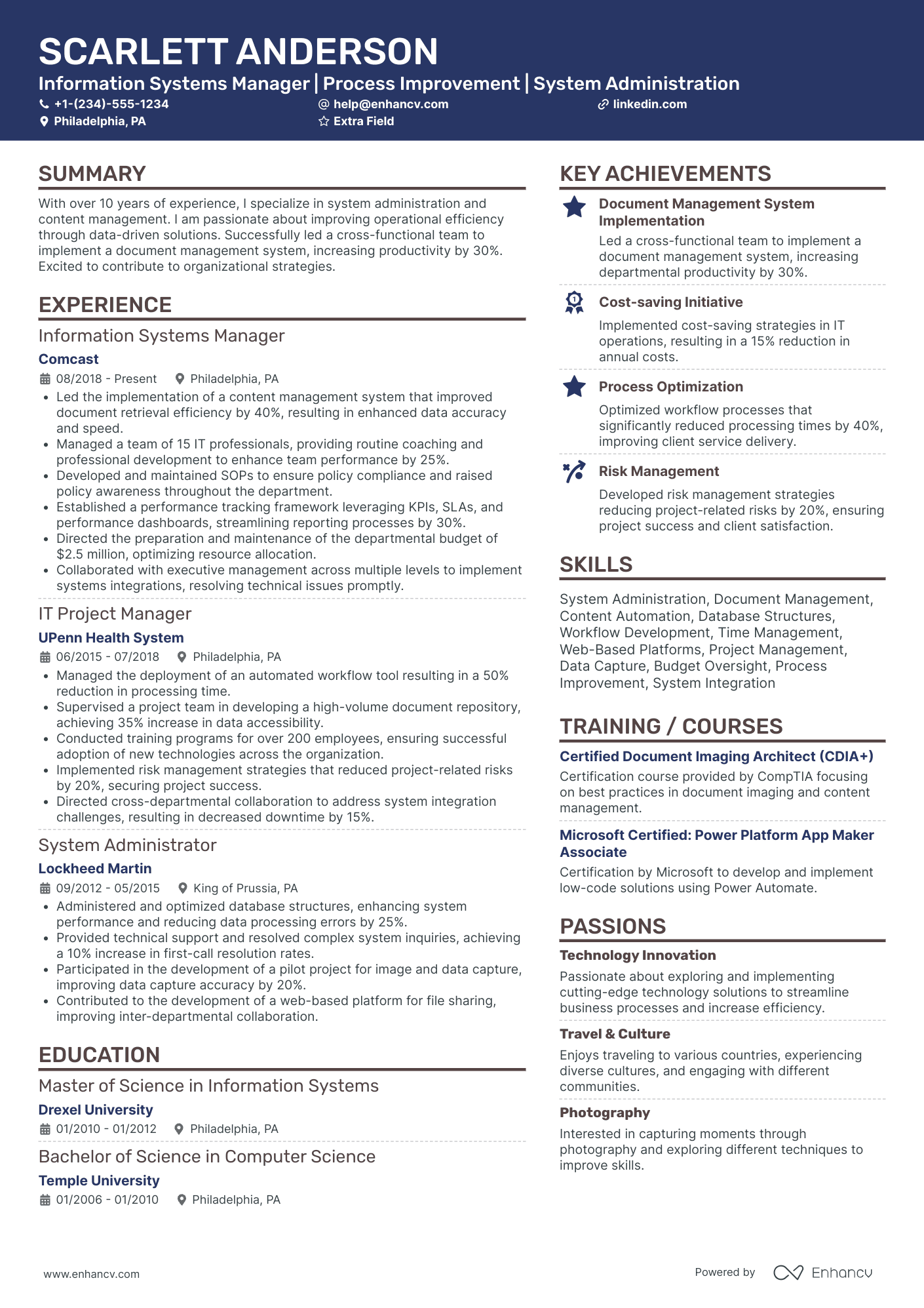“I wanna speak to the manager” may sound hilarious to meme-creators, but it’s not always so funny when the manager is, in fact, you. A powerful and coveted position by many, a job in management holds significant challenges. Managers often need to communicate top-down directives while also advocating for their team's needs.
Modern managers must adapt to evolving trends, such as the increase in remote work and the emphasis on work-life balance, which are now significant considerations for employees when deciding to stay with an organization.
In your job, you need to balance between being a leader, an empath, and sometimes, even a therapist! Show recruiters you can overcome any obstacle with a strong management resume.
Key takeaways
- Structure your resume with a clear, straightforward layout, ensuring that key contact information is prioritized at the top.
- Specific achievements and metrics in your experience section underline your measurable impact on organizational success.
- Make your resume align with the job description by incorporating keywords and emphasizing pertinent experience.
- Relevant technical skills and certifications demonstrate your proficiency with industry-standard tools and software.
- Underline significant projects and professional affiliations to point out your active engagement within your specific field.
Let's explore a sample management resume.
Management resume sample
If you don’t know where to begin, take a look at this sample resume. You can build off it or create your own, with the Enhancv resume builder.
Samantha Veil
Change Manager
email@enhancv.com @LinkedIn New York, NY
Summary
Accomplished Change Manager with over 10 years of leadership experience in diverse business environments. Expert in leading teams, managing projects, and driving operational excellence. Demonstrated ability to develop strategic plans, improve processes, and maximize team productivity. Committed to fostering a collaborative work environment and achieving company goals through effective management practices.
Experience
Senior Manager
Google, New York, NY
June 2015 – Present
- Managed a department of 25+ employees, overseeing project execution and strategic business initiatives.
- Implemented data-driven strategies that improved team productivity by 35% and reduced operational costs.
- Conducted comprehensive performance reviews, initiated career development programs, and ensured alignment with company objectives.
Operations Manager
Amazon, New York, NY
May 2010 – May 2015
- Led operational improvements in logistics and supply chain processes, enhancing efficiency and customer satisfaction.
- Coordinated with cross-functional teams to meet targets and manage workplace schedules effectively.
- Designed and executed training programs for new hires, significantly improving the onboarding process and employee retention rates.
Education
Bachelor of Science in Business Administration
Columbia University
Graduated: 2010
Certifications
- Certified Project management Professional (PMP), 2014
- Six Sigma Green Belt, 2012
Skills
- Strategic Planning
- Team Leadership and Motivation
- Performance management
- Project Coordination
- Employee Development
- Operational Analysis
- Effective Communication
Languages
- English (Native)
- French (Fluent)
Having seen an example, let’s see what format provides the best setting for your credentials.
How to format a management resume
As a manager, you set high standards for the work you do, but mostly for yourself. Your resume layout is a way to reflect excellence. From document length to file name, follow our expert tips to impress hiring managers.
Top sections on a resume
The first thing you might want to do is outline your manager resume sections. Here’s what you shouldn’t go without:
- Contact information
- Work experience
- Educational background
- Key skills
- Professional summary
- Bonus: leave some space for additional sections
We’ll discuss all of these in detail below.
Resume format
Considering the sections order we mentioned above, the reverse-chronological resume is your best option. This resume format will list your work history comprehensively, starting with your most recent experience.
Resume designs
- Go for a two-page resume if you have <10 years of experience. Two-page resumes are said to be 2.9 times more effective for managerial positions.
- If you do choose the 2-page format, Set your margins between 0.5-1” on all sides to make the document easier to read.
- Choose a single or a two-column layout depending on how detailed you want to get on your resume.
- Choose elegant colors and classic fonts to make your resume memorable while keeping the focus on your expertise.
Contact information
- A clear header on top of your resume should respond to what hiring managers are looking for. Save them time—they’ll appreciate it!—by neatly stating your contact information: name, job title, and email.
- As a manager, you might have a well-established LinkedIn presence. So, include a link to your profile or even your personal website in your header.
- Generally, photos can be a cause for bias, and your manager resume has a lot of things to impress with. Still, check with the specific job posting.
Be aware of location-based layout differences – Canadian resumes, for instance, might differ in format.
Make sure the job title aligns with the position you’re applying for. If the job description says “General Manager”, that’s what you want to list in your header.
PRO TIP
ATS (Applicant Tracking Systems) often causes unnecessary fear. Contrary to popular belief, our tests showed that fonts, colors, columns, and resume length don’t affect parsing. Focus on matching job description language and formatting details like dates and bullet symbols as those may affect your application. However, not all companies use ATS, so avoid keyword stuffing and keep your resume clear and readable.
File formatting
- Sstick to this popular naming convention: FirstName_LastName_JobTitle.
- A PDF format will keep all your resume elements in place but check the job description as some companies will require a different format.
- Ready to put theory into practice? Use our free AI resume checker to make sure your resume is up to the highest standard!
Is your resume good enough?
Drop your resume here or choose a file. PDF & DOCX only. Max 2MB file size.
Now that you have your resume format perfected, let's delve into the crucial details of showcasing your experience effectively.
How to write your management resume experience
As a manager, your experience section is vital to your success. It can be quite versatile depending on what you’re manager of. For example, if you’re a retail manager, you might focus on your knack for boosting sales and managing inventory. Conversely, a project manager would highlight their skills in keeping projects on track and within budget.
No matter your specialty, be sure to include key achievements that show off your leadership skills and the positive impacts you’ve made—like boosting team efficiency or cutting costs.
Crafting a resume that speaks directly to the job you're applying for is not just a good practice—it's a strategic necessity.
Create a targeted experience section
Tailoring your resume to match the job description is a move that will secure interviews. Like managers, recruiters are busy and will appreciate spotting the keywords they seek on your resume.
Let’s look at a real manager job description.
Project manager
Position summary
We are looking to hire a talented and eager Project Manager to join our team in a remote position. The Project Manager will perform a wide variety of activities to support the start-up, management, and completion of patient services for clinical research studies.
Responsibilities of this position include but are not limited to:
- Contracts support; review protocols in support of new requests for proposal.
- Study management activities and study start-up.
- Maintain activities spreadsheet for studies.
- Regular communication with global study stakeholders including CRO and Sponsors.
- Schedule and conduct study on-boarding phone calls, KOMs, IMs, and follow-up calls.
- Act as the main point of contact for Sponsor and CRO clients for Scout Clinical services for assigned studies.
- Collaborate on operational internal policies and manage adherence.
- Oversee the regulatory onboarding process of studies in collaboration with the Scout Clinical Compliance Team.
- Provide study-specific patient and site-facing documentation.
- Ongoing administrative tasks/document management throughout the life of the study.
- Oversee training of sites, patients, and study teams on utilization of the Scout Clinical portal in collaboration with the Scout Clinical Trial Manager.
- Oversee and manage Scout Clinical portal configuration for assigned studies.
- Work with the Patient Liaison team to support travel and reimbursement activities associated with assigned studies.
- Liaise with Finance to produce statements, reports, and invoices and confirm monthly submissions to clients for assigned studies.
- Serve as an additional Subject Matter Expert for Scout software development team.
The ideal candidate will have the following experience, skills, and knowledge:
- Strong understanding of project management
- Strong understanding of the clinical trial process and clinical trial protocols
- Ability to handle multiple projects in various planning stages concurrently
- Ability to track and manage key dates/deadlines
The ideal candidate will have the following competencies and qualities:
- Bachelor’s Degree
- Experience in the clinical/healthcare industry, preferably clinical research
- Strong computer skills (Excel, Word, Outlook)
- The ability to learn/be coachable
- Timely, professional, and courteous communication with clients, vendors, and colleagues
- Highly ethical and of good character
- Attention to detail
- Well-organized with an ability to prioritize and multi-task
- Ability to work within and meet strict deadlines
- Ability to work under pressure in a fast-paced, demanding environment
- Self-motivated but also follows instructions
- Forward-thinking / problem solver / critical thinker / analytical
- Team player
And now, let’s see an experience entry tailored to it.
- •Directed project management activities for over 40 multi-phase clinical trials ensuring compliance with global regulatory standards and on-time delivery of project milestones.
- •Established and maintained effective communication channels with stakeholders including sponsors, CROs, and internal teams, leading to a 20% improvement in project coordination efficiency.
- •Spearheaded the implementation and management of a clinical trial portal and training programs, improving participant engagement and data integrity.
Here’s why it works:
- Experience as a Project Manager in clinical trials mirrors the job requirements, meaning the candidate is well-suited for the role with a proven track record in the same capacity.
- The description aligns closely with key job responsibilities such as managing clinical trial protocols, ensuring stakeholder communication, and overseeing project delivery, directly addressing the priorities outlined in the job description.
- The bullet points illustrates specific, measurable successes such as a 20% improvement in project coordination efficiency and effective management of over 40 clinical trials.
Quantifiable experience turns responsibilities into measurable achievements. Let’s explore how that works.
How to quantify your experience on resume
As a manager, you need to be results-driven. And results are best measured with numbers. Moreover, in a resume filled with words, numbers catch attention quickly. Just remember: listing plain numbers without context is never a winning strategy. Always explain what the tangible result you’re mentioning led to or achieved.
Below you can see our suggestions on how to prove your management experience.
- Incorporate concrete ways you increased efficiency: Being specific about your role in automating processes or implementing more efficient systems gives a more quantifiable view of your abilities.
- Discuss savings through cost reduction: Emphasize instances where you were able to cut costs without compromising product quality or employee satisfaction.
- Mention revenue growth under your leadership: This immediately illustrates your contribution to the company and underscores your business acumen.
- Highlight reductions in employee turnover: If you managed to lower the turnover rate in your department, it suggests good leadership and a positive work environment.
- Show specifics of risk management: Outline occasions where you navigated business risks successfully. For instance, discuss your role in crisis management or damage control in challenging times.
With your achievements listed, we'll now integrate essential hard and soft skills to complete your professional profile.
Management skills for your resume
It seems everybody has an opinion on what skills make a good manager. And as with everything else, there is no fit-all answer. Use your skills section to give a peek into your management style. Whether you lead by example, encourage team input, or prefer hands-on guidance, explain how your approach helps achieve great results. You might say something like, “By encouraging team feedback, I increased project delivery efficiency by 40%.” Keep your writing clear and straight to the point, using bullet points and action verbs to make your resume easy to scan. This makes it easy for potential employers to see how you lead and the benefits you bring to the table.
Dedicate some space to your hard, or industry-specific skills, and priotitize those that are relevant to the job you’re after. We’ve got some more general suggestions below, but always reflect on your company's needs:
Best hard skills for your management resume
- Project management
- Budgeting
- Business analysis
- Data analysis
- Strategic planning
- Risk management
- Process improvement
- Sales strategy
- Supply chain management
- Financial reporting
- Contract negotiation
- Microsoft Office Suite
- Enterprise Resource Planning (ERP) software
- Customer Relationship management (CRM) software
- Business Intelligence software
- Corporate governance
- Compliance management
- Quality control
- Lean Six Sigma
- Inventory management software
As hard skills are easy to measure and test, only list those you’re confident in. You never want to lie or exaggerate your abilities on your resume.
Soft skills depend on what kind of manager you want to be and what team you’re leading. For example, if you’re a manager of a big hospital, you might put more focus on decisiveness and initiative, while a manager of a football team might opt for developing their strategic vision and coaching.
Still, there are universal people skills every manager would benefit from. For example:
Best soft skills for your management resume
- Leadership
- Communication
- Critical thinking
- Problem-solving
- Decision-making
- Conflict resolution
- Team building
- Motivation
- Adaptability
- Negotiation
- Time management
- Creative thinking
- Delegation
- Emotional intelligence
- Self-awareness
- Strategic vision
- Listening
- Empathy
- Coaching
- Patience
Following skills, your education and certifications provide the foundational proof of your expertise and capabilities.
How to list your education and certifications on your resume
Because manager positions are so versatile depending on the field you work in, there’s no one-size-fits-all degree that’s perfect for your manager resume. And this is what makes your education section so important—it’s yet another way to distinguish yourself.
Whatever your degree is, you can make it work in your favor. Higher education provides you with basic skills that apply to every job, like time management, adaptability, teamwork, and persistence.
Organize this section following these tips:
- Clearly mention your highest degree and your major to establish your academic background.
- Include the name to highlight the prestige and credibility of your education.
- State the year you graduated to indicate the recency of your education.
- List courses relevant to management, such as Strategic management and Leadership in Organizations.
- Note any honors such as Dean’s List or Summa Cum Laude to underline your excellence and potential as a manager.
Take a look at this education entry that targets the job posting above:
- •Specialized in healthcare project management, with a focus on clinical research and trial protocols.
- •Developed strong analytical skills and proficiency in MS Excel, critical for effective study management and reporting.
- •Engaged in comprehensive project management training, including stakeholder communication and compliance management.
We like this example for its:
- The education section lists a degree in Project management with a focus on healthcare, aligning directly with the skills and knowledge needed for this particular job
- The GPA score and specific coursework related display the candidate's strong foundation in both the theoretical and practical aspects of project management in a clinical setting.
- The bullet points detail the individual's specific training and skills relevant to the responsibilities of the position, such as stakeholder communication and compliance management.
While your degree can be in any field, it’s important to list management-related certifications on your resume to demonstrate relevant skills and expertise. These are all strong suggestions:
Best certifications for your management resume
Armed with qualifications and skills, let’s craft a compelling summary that captures recruiters' interest right from the start!
How to write your management resume summary
If hiring managers only had to read one section of your resume, it’s gonna be your management summary. So, make it captivating. Here’s how:
- Outline your core qualifications and leadership traits that directly apply to the management role in up to 5 sentences.
- Emphasize measurable success like improved project retention rates.
- Reference relevant advanced degrees and management certifications to emphasize your professional credibility.
- Show your commitment to aligning team objectives with company goals to drive profitability and enhance organizational effectiveness.
Here’s a resume summary tailored to the job posting above:
This resume summary proves the candidate isn't just a good fit—they're ready to elevate the company's project management game. It speaks directly to the employer, promising not just to meet expectations but to drive growth and boost efficiency in their projects.
Finally, let's enhance your resume by exploring additional sections that can spotlight your unique qualifications and interests.
Optimize your resume summary and objective for ATS
Drop your resume here or choose a file.
PDF & DOCX only. Max 2MB file size.
Additional sections for a management resume
Surely, your management resume contains multiple “Wow, impressive!” moments. Still, if space allows, you can enhance it further by incorporating optional sections that reveal your personality and achievements.
Consider adding these to your resume:
- Specific accomplishments, such as awards, recognitions, or successful projects that demonstrate your management capabilities.
- Memberships in professional organizations, such as the American management Association or similar groups, can give you credibility and authority.
- Relevant volunteer work is something you should not miss out on in your resume. It gives insight into your human sight and how you’re willing to connect and contribute.
- Articles, papers, or presentations you have authored or contributed to in the field of management.
- Any additional languages you speak, especially if relevant to your role or industry.
- Cover letters are a great way to provide a personalized introduction into your leadership skills and specific achievements.
Optionally, аdd a list of professional references or a note indicating they are available upon request. Even better if you can get the teams you led to vouch for your good management style!
In conclusion
Your management resume should reflect your unique leadership style and skills. Use our tips on formatting, experience, education, and skills to make your application soar!
Management resume examples
By Experience
By Role
